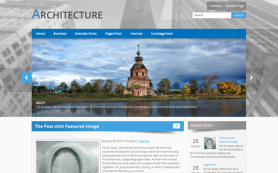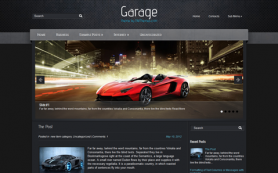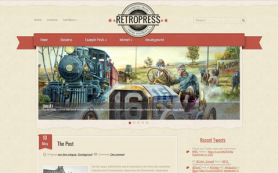Starting a blog is easy because you just need to click on a few templates and set up the blog. However, a successful blog requires a little more effort. Here are three steps that will guarantee a successful blog using WordPress.
Choose a Niche
It is impossible to target the billions of people around the world using the internet. You cannot satisfy their content needs. Such a target also means that you are competing with everyone else, a battle that you cannot win.
The only option for a serious blogger is to identify a niche. Niche represents an area where you will focus your attention and effort. Such focus helps you to meet the content expectations and needs for your target readers.
How do you choose a niche for your blog?
- Passion- choose an area that you are passionate about. It helps you to be more creative and produce insightful content. Passion will also keep you going, especially when returns are low or the blog is not yet making money. You will also enjoy the journey of building a brand using the blog because you are working on a topic or area you are passionate about.
- Viability- evaluate whether the niche or topic is viable. A viable area is one that can attract sufficient traffic, engagements, and sponsorship, among other benefits of blogging. Remember that you have bills to pay when running a blog. Developing the blog costs money. Creating content is also an expense. If the niche is not viable, you will be wasting time and resources.
- Expertise- do you have the expertise to run a blog in the area. For instance, if you choose a medical related topic, you gather followers based on the authenticity and quality of your content. In case the content is weak, you attract backrush and reduced traffic. Choose a niche where you can authoritatively create content.
The niche is just the bigger idea for your blog. There are subareas within a niche that you can emphasize from time to time to see what works best for you. At the end of the day, you will be testing several topics and subtopics until you settle on the perfect one.
Identify the Best Template
A template is the overall architecture or design of your website. It determines the enhanced areas on your blog. For instance, some templates are optimized for images while others display photos better.
The best WordPress template will depend on the chosen niche and decision made on the type of content. Where the blog will have more videos than text, you will need a different template. Remember that the template determines your user experience. Finding information and engaging with your content will be easy based on the template you have chosen.
Templates are either free or require subscription. It is added features that make templates expensive. The additional features will help you to monetize your business like prepare subscriptions, add carts, and create groups within your website.
A template will also help you to create a better identify. For instance, some templates allow you to customize your domain name. It means that the choice of a template in the end contributes to blog branding.
Create Content for Your Blog
Start engaging your potential followers by creating content. The content will be guided by the niche you chose. Stick to this niche so that followers can consider your blog as stable and easy to follow because they can relate to the content.
Develop a content calendar to guide you on what to write and when to add the content on to your blog. Since this is a daunting task, you can get homework Q/A on how to order papers online. By buying papers online or ordering your writing online, you have more time to craft a winning brand.
Creating content is not enough on its own. You must consider SEO factors like keywords, captioning, and collecting data on the performance of your blog. Use the data to improve on engagement and quality of content you produce. Engage with followers to understand what they want and address any concerns they may have about your blog. Such engagements create a loyal following for your blog.
A successful WordPress blog is work in progress. You must work on the blog even as you watch the changes on blogging platforms. Find a way to monetize the blog so that it can meet its operational costs.
 Members Area
Members Area




